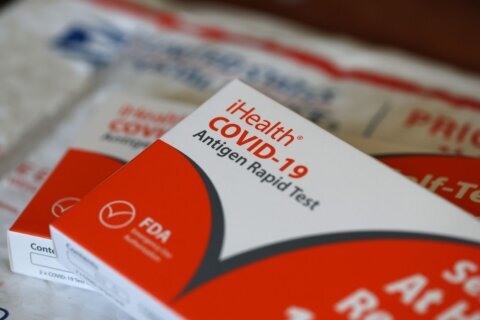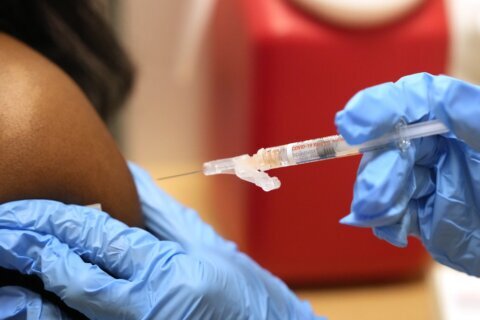Last week, the US Centers for Disease Control and Prevention announced it would no longer be maintaining a country-by-country travel advisory of Covid-19 risk. Instead of assessing the level of Covid-19 infection in each country, the CDC will post notices only when there are new variants or other situations that would change its travel recommendations.
What does the CDC’s change mean and how should people assess the risk of international travel? What precautions should they take, and how can they best prepare for a trip? Are there specific considerations for those who want to resume cruising? And what about domestic travel, especially coming into colder months?
To address these questions, I spoke with CNN Medical Analyst Dr. Leana Wen, an emergency physician and professor of health policy and management at the George Washington University Milken Institute School of Public Health. She is also author of “Lifelines: A Doctor’s Journey in the Fight for Public Health.”
CNN: What does it mean that the CDC is no longer maintaining country-by-country Covid-19 travel advisories?
Dr. Leana Wen: The CDC has long maintained health travel advisories on its website. The CDC advises travelers to be wary of areas experiencing outbreaks of yellow fever, dengue, cholera, Ebola and other infectious diseases.
During the pandemic, the agency also stratified countries based on their level of Covid-19 infection. This was meant to assist people planning trips understand to what extent Covid-19 was circulating in various parts of the world, and for travelers to avoid nonessential travel in areas undergoing coronavirus surges.
However, there was some concern about the travel advisories. Not all countries maintained accurate or up-to-date numbers. At different points over the last two and a half years, there were many parts of the United States with higher rates of Covid-19 than countries in the CDC’s “avoid nonessential travel” category. In addition, after vaccines became widely available in the United States, there has been a growing sense that the primary risk determinant should no longer be primarily based on coronavirus levels — as long as vaccines were protecting people from hospitalization.
This CDC decision does not mean that the agency will stop tracking Covid-19 altogether. The CDC will alert the public if there is a new concerning variant emerging. It would also flag if countries are hit so hard by the coronavirus or other diseases that their health care infrastructure is overwhelmed. But infection levels alone are not going to trigger an increase in warning levels moving forward.
CNN: How can people go about assessing their risk of international travel?
Wen: The key question is to ask if whether you are up to date on the Covid-19 vaccine, meaning that you have received the new bivalent booster. If so, you are very well-protected from severe illness due to Covid-19.
Some individuals may have decided to hold off on the updated booster. If you have recently had Covid-19, it would be reasonable to wait three months, as reinfection is unlikely during this time. Also, the updated booster is not yet available for children under 12. Kids in general are much less likely to become severely ill compared with adults — and if they are vaccinated or have recently contracted the coronavirus, they are very unlikely to become severely ill even without any booster.
Your age and presence of underlying medical conditions are also factors. Those who are immunocompromised should ask their doctor whether they are eligible for the preventive antibody Evusheld. People 65 and older and people who have chronic medical conditions should also inquire, in advance of a trip, whether they would be eligible for treatments such as Paxlovid and/or monoclonal antibodies if they were to contract Covid-19 while abroad. If so, these are additional considerations in planning travel: Will the location you’re going to have these treatments available? If you become severely ill and need hospitalization, is there good health care readily accessible?
Finally, remember that the primary purpose of the coronavirus vaccines is to protect against severe disease. They also reduce the risk of infection compared with individuals who are unvaccinated or not boosted, but they do not prevent it altogether. Those who wish to reduce their risk of infection should take additional precautions, such as wearing high-quality N95 or equivalent masks in indoor settings like airports, train stations, restaurants and other crowded venues.
CNN: What precautions should people they take while traveling, and how can they best prepare for their trip?
Wen: Again, getting vaccinated with the new Covid-19 booster is the first and most important step. Make sure to get the vaccine at least 10 days prior to travel. You should get the flu vaccine, too. The influenza vaccine can be given at the same time as the Covid-19 vaccine.
Bring plenty of coronavirus tests with you — at least two for each family member traveling. That way, you can test if you develop symptoms or find out that you have a significant exposure.
Know what treatments you are eligible for. Some physicians may be willing to prescribe Paxlovid to you just in case you contract Covid-19 on your trip. Others may not — in which case, know which treatments you would get if you do end up with the coronavirus. Have a plan for how to access treatments.
Do pharmacies need a doctor’s prescription, or can you just walk in and get Paxlovid? Are there reliable, high-quality hospitals in case you become severely ill? And will your insurance or other coverage cover health care costs in another country? Travel insurance is generally a good idea, though not all policies cover delays or cancelations due to Covid-19, so be sure to check.
Also, find out what are rules for each country you’re going to. Many countries have lifted vaccine and testing requirements, but they are still in place in some.
CNN: Are there specific considerations for those who want to resume cruising?
Wen: The CDC lifted its Covid-19 risk warning for cruise travel in May. Some cruise lines have also been relaxing previously strict vaccine and testing protocols. This means people traveling on cruises must be prepared to encounter Covid-19. This doesn’t mean you shouldn’t go, but you need to assess your individual risk and the value of a cruise vacation. Many people will say they accept the risk of contracting the coronavirus because of how much being onboard matters to them. If you are vaccinated and up to date on boosters, the chance of severe illness is probably very low, so this is a reasonable decision.
Others might decide on different modes of international travel. A cruise where thousands of people are freely associating while maskless with one another is very different from, say, a beach vacation in one location where all meals are outdoors, or a self-catered trip where you’d mask in indoor settings like trains and museums. Those who wish to continuing avoiding the coronavirus can choose a more cautious approach while still resuming travel.
CNN: What’s your advice for domestic travel, especially coming into colder months?
Wen: The key recommendation for being up to date on vaccines still applies, as does my advice to bring plenty of tests and to know what treatments you’d get and from where.
We’ve entered a point with Covid-19 where we’ve recognized that this virus is going to be with us for many years to come. That means taking advantage of the many tools at our disposal to protect us, while also going back to the pre-pandemic activities we love — including travel.
The-CNN-Wire
™ & © 2022 Cable News Network, Inc., a Warner Bros. Discovery Company. All rights reserved.







